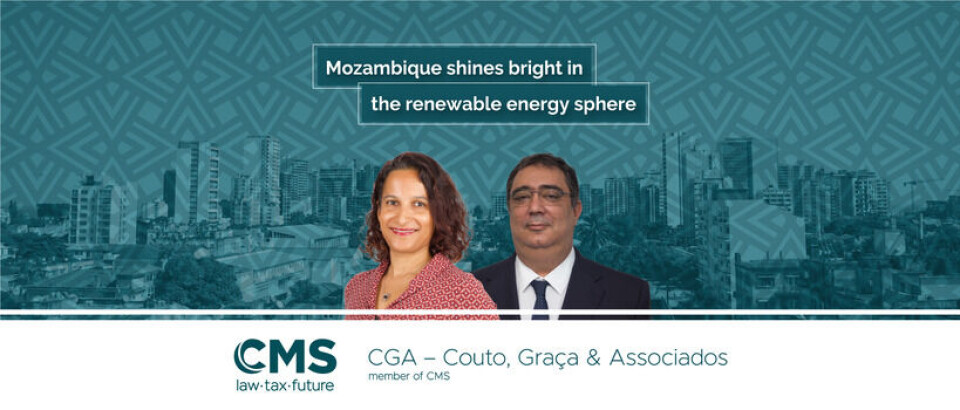Mozambique’s abundant natural resources mean it’s able to diversify its renewable energy offering through hydropower, solar, wind, biomass, wave energy and geothermal options, resulting in a massive potential 23 000 GW of energy, mostly from solar power.
The country’s total electrification rate was about 40% in 2021, so it still has a long way to go to meet the government’s goal of achieving 100% universal access to electricity by 2030.
With this aim in mind, the government launched the “Energy for All” programme, coordinated by the Ministry of Mineral Resources and Energy and financed by the World Bank and a Multi-Donor Trust Fund. The plan is to have renewable energy make up 20% of the national electricity grid.
“Universal access will necessarily improve not only with on-grid projects, but also with off-grid projects mainly based on renewable sources,” said Pedro Couto, chairman of leading Mozambique law firm Couto Graça & Associados (CGA), which is part of the global legal organisation, CMS.
In recent years Mozambique has made efforts to improve the legal and regulatory framework for the electricity sector to attract more private investment in renewable energy and off-grid projects. One aspect of this was the creation of an Energy Regulatory Authority. A new Electricity Law also came into force in October 2022, and created a new entity known as the Manager of the National Electricity System. The new law will, among other things, seek to maximise all of the country’s renewable energy sources and reduce the use of fossil fuel sources.
In December 2022, the government published the Regulation on the Tariff System for the Supply of Energy through the National Electric Network, which establishes the methods by which the regulatory authority will approve tariffs and prices.
“Along with public initiatives, the government relies heavily on investments by the private sector relating both to power generation and power transmission,” said energy and infrastructure expert Gisela Graça, a lawyer at CGA.
One of the government’s innovative ways of financing power projects has been through the Renewable Energy Auction Program (“PROLER”). The aim is to launch renewable energy power generation projects in a transparent, competitive and sustainable manner. PROLER is expected to attract independent power producers and leverage private investment of approximately USD $217 million to implement four renewable energy projects.
There are a number of upcoming opportunities in the renewables sector in Mozambique, especially in the hydropower space where the government has recognised the Mphanda Nkuwa hydropower plant project on the Zambezi River as a key priority for the country. The 1 500 MW project is not only expected to meet growing domestic demand, but is also expected to create power export opportunities and thereby transform the country into a Southern Africa regional energy hub. The project is estimated to be worth US$4.5 billion.
The demand for solar home systems and other autonomous systems in rural and off-grid areas is also growing, and there are many opportunities for investors in this market.
The full CMS report on renewable energy in Mozambique is available here.
To join Africa Legal's mailing list please click here

